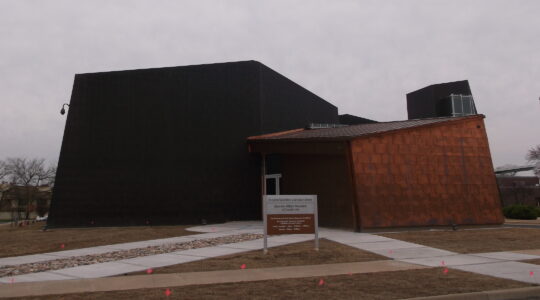LOS ANGELES (JTA) — A group of neighbors has agreed to drop its lawsuit against the expansion of the Simon Wiesenthal Center and the Museum of Tolerance in Los Angeles.
In return, the center will pay Homeowners Opposed to Museum Expansion $150,000 to cover legal fees and to purchase noise-monitoring equipment.
Following 2 1/2 years of mutual recriminations, formal hearings and lawsuits, the settlement leaves the museum’s plans to rent out its expanded facilities for social events and conferences largely intact.
Neighbors had complained that the 28,000 square-foot expansion in the West Los Angeles area would negatively impact the residential character of the area because of the construction noise and the increased traffic and parking problems.
Under the agreement, the museum will be allowed to rent out space for conferences, workshop, banquets, parties and concerts. Most events will have a cap of 500 guests, with a maximum of 800 for up to 12 events per year. In addition, the museum can hold up to 18 evening events per month, and up to 10 per month lasting until midnight.
Susan Burden, the center’s chief financial and administrative officer, said that while she was certain the center ultimately would have prevailed in the courts, she settled for the sake of good future relations with neighbors.
However, Susan Gans, leader of the homeowners group, declined to describe the settlement as “amicable.” She noted that her group of mainly elderly residents didn’t have the resources to continue a prolonged legal and public relations confrontation.
Gans said that she will closely monitor and publicize the museum’s future activities and that “the battle will go on.”
The Wiesenthal Center announced last month that costs for its planned Museum of Tolerance in Jerusalem would be cut from $250 million to $100 million, and that renowned architect Frank Gehry had withdrawn from the project.

Help ensure Jewish news remains accessible to all. Your donation to the Jewish Telegraphic Agency powers the trusted journalism that has connected Jewish communities worldwide for more than 100 years. With your help, JTA can continue to deliver vital news and insights. Donate today.





